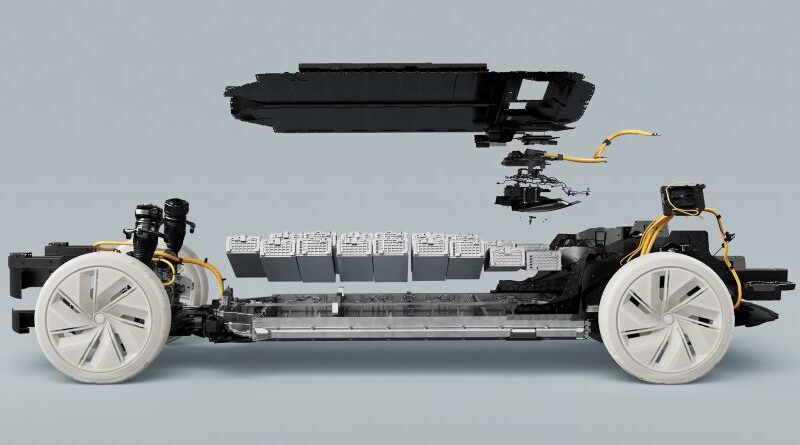Higher-density Li-ion batteries and fast-charging for Volvo EVs
At the recently held Tech Moment event, Volvo Cars laid out its future technology roadmap as it transitions towards becoming a fully electric premium car company. One of the areas where the Swedish carmaker will focus its resources is battery cell technology, where it aims to develop future batteries to be capable of two important things: more range and faster charging times.
To do so, the company will improve lithium-ion battery technology on its forthcoming second generation of electric cars, starting with a new SUV built on its dedicated EV platform. The Concept Recharge is a glimpse into the future line-up, showcasing some of the features that the company has planned.
Volvo says that in the near term, it plans to work with Northvolt – both companies entered a joint venture recently – to increase the energy density in its battery cells by up to 50%. Before the end of 2030, the aim is to have battery cells that have an energy density that breaks the 1000 Wh/l mark, which would be on par with solid-state battery technology, and achieve a real driving range of 1,000 km.
There will also be a new approach to how the batteries will be packaged, as by the middle of the decade, Volvo will introduce its third generation of electric cars. This will see batteries be integrated into the floor, but the cell structure will also contribute to overall vehicle stiffness.
Companies like Tesla and Canoo have also announced their structural battery pack designs previously, where the cells themselves provide structure. This negates the need for extra material for a separate battery enclosure to contain the batteries, which reduces weight and increases efficiency.
“We want to constantly increase the customer benefits of driving a pure electric Volvo car. By simplifying the design and integration of our battery cells, we can reduce weight and maximise space, allowing for considerable improvements in battery capacity, range and charging times,” said Henrik Green, Volvo’s chief technology officer.
While batteries with higher energy densities are certainly beneficial, how to charge them quickly is also a concern. On this, Volvo well employ better battery technology as well as continuous improvements to software and fast-charging technology, with the goal of reducing current charging times by around a 50% by mid-decade.
Volvo will also focus on reducing the carbon impact of batteries, starting with engaging its suppliers to use 100% renewable energy sources to produce batteries and using blockchain technology to ensure responsible sourcing.
The company also wants to make better use of the precious metals found in batteries, including remanufacturing or reusing batteries wherever possible. Second-life applications, such as energy storage, are also being investigated, while batteries that have reached the end of their lifespan will be recycled.
The successor to the XC90 will come with bi-directional charging allowing customers to offload excess electricity in their car battery to the power grid. This allows Volvo drivers to supply energy to the grid when prices and CO2 emissions related to electricity production are at their daily peak, while charging their car when emissions fall.
“We want to offer our customers sustainable pure electric cars that makes their lives easier and more enjoyable. Through smart innovation and collaboration with key partners, we can give customers what they want – more range, faster charging and lower costs – and further boost widespread adoption of electric mobility,” Green commented.




